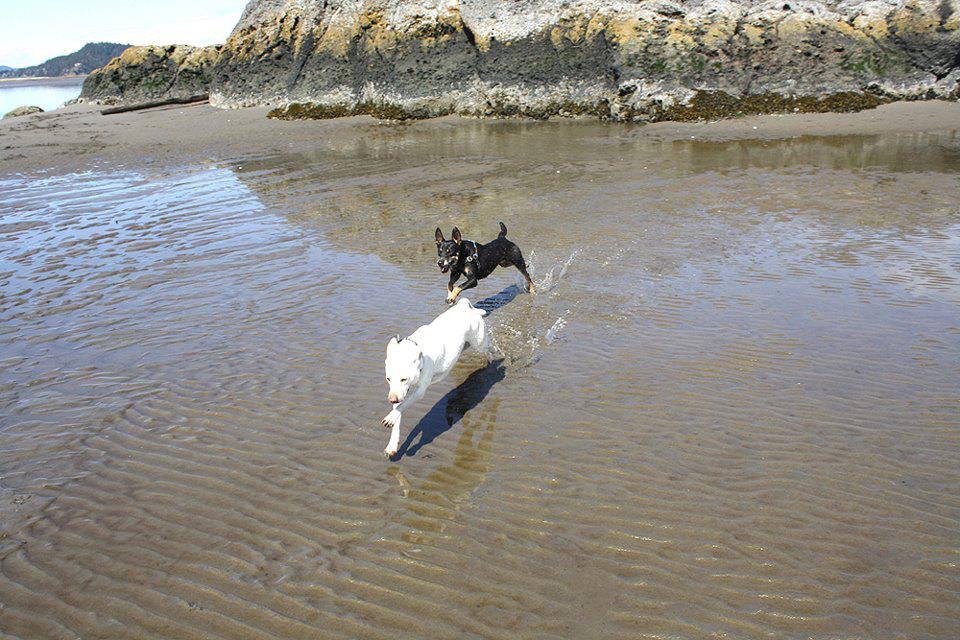The Taiwan Mountain Dog, also known as the Formosan Mountain Dog, is a highly intelligent, loyal, and energetic breed with roots tracing back to the indigenous hunting dogs of Taiwan. These dogs are known for their sharp instincts, agility, and independence, which make them excellent companions for active owners. However, like any breed, they require proper training and socialization to thrive in a domestic environment.
In this blog post, we’ll explore the key aspects of training and socializing a Taiwan Mountain Dog, focusing on techniques that build a well-rounded, well-behaved companion.
Understanding the Taiwan Mountain Dog’s Temperament
Before diving into training techniques, it’s important to understand the breed’s unique temperament:
Sensitivity: While confident, they can be sensitive to harsh training methods, so positive reinforcement is key.
Intelligence: Taiwan Mountain Dogs are quick learners but may also exhibit independent thinking, which can sometimes be mistaken for stubbornness.
Energy: As a breed with a history of hunting and working, they require plenty of physical and mental stimulation.
Loyalty: These dogs form strong bonds with their family and can be protective, making early socialization critical.
The Importance of Early Socialization
Why Socialization Matters
Taiwan Mountain Dogs are naturally wary of strangers, a trait that helped them in the wild and as hunting dogs. However, in a home environment, excessive wariness can lead to fear-based aggression or anxiety around new people, pets, and situations. Early socialization helps mitigate these tendencies and ensures your dog feels comfortable and confident in various settings.
When to Start Socializing
Socialization should begin as early as possible, ideally during the puppy stage between 8 and 16 weeks. This is a critical period when dogs are most receptive to new experiences.
Socialization Techniques for the Taiwan Mountain Dog
Expose Them to a Variety of People, Animals, and Environments
Take your Taiwan Mountain Dog to parks, pet-friendly cafes, and around your neighborhood to introduce them to different sights, sounds, and smells. Allow them to meet people of varying ages, races, and appearances. It’s also helpful to introduce them to other dogs, cats, and even farm animals if you have access.
- Tip: Keep these interactions positive by rewarding your dog with treats and praise when they exhibit calm behavior.
Controlled Playdates
Arrange playdates with other well-behaved dogs to teach your Taiwan Mountain Dog proper canine communication. Watch for signs of discomfort and keep the sessions short initially, gradually extending them as your dog becomes more comfortable.
- Tip: Supervise the interactions closely and step in if play becomes too rough. You want your dog to associate playdates with fun, not fear.
Desensitization to Unfamiliar Situations
Expose your dog to various environments like car rides, elevators, and noisy areas (construction sites, busy streets) to help them remain calm and composed in potentially overwhelming situations.
Tip: Start with low-intensity versions of these environments (e.g., quiet streets) and gradually increase the intensity as your dog’s confidence grows.
Effective Training Techniques
Use Positive Reinforcement
Due to their intelligence and sensitivity, Taiwan Mountain Dogs respond best to positive reinforcement training. This involves rewarding desired behaviors with treats, toys, or praise, which encourages them to repeat those actions.
- Tip: Avoid punishment-based training, as it can lead to fear or aggressive behavior in this breed. Instead, redirect unwanted behavior to something positive and reward accordingly.
Focus on Basic Obedience
Basic commands like “sit,” “stay,” “come,” and “leave it” should be the foundation of your training. Taiwan Mountain Dogs are quick learners, but consistency is key. Short, frequent training sessions are more effective than long, tedious ones.
- Tip: Train in various environments to ensure your dog responds to commands regardless of distractions.
Leash Training
Given the Taiwan Mountain Dog’s natural hunting instincts, leash training is essential. Start by introducing your dog to the leash in a calm environment. Once they’re comfortable, practice walking in low-traffic areas, gradually increasing exposure to busier areas.
- Tip: Use a no-pull harness if your dog tends to pull, and reward them when they walk calmly beside you.
Mental Stimulation and Puzzle Games
In addition to physical exercise, Taiwan Mountain Dogs need plenty of mental stimulation to prevent boredom and destructive behavior. Interactive puzzle toys, scent games, and advanced obedience training are great ways to keep their minds engaged.
Tip: Rotate toys and games to keep things fresh and challenging for your dog.
Addressing Common Behavioral Challenges
Dealing with Independence and Stubbornness
Taiwan Mountain Dogs can exhibit independent behavior, a trait inherited from their days as free-roaming hunting dogs. While independence can be a sign of intelligence, it can also lead to selective listening. The key here is patience and persistence.
- Tip: Stay consistent with commands and avoid repeating them multiple times. Teach your dog that listening to you leads to rewards.
Managing Guarding Instincts
Some Taiwan Mountain Dogs may display protective or guarding behaviors, especially toward their family or territory. This can manifest as barking at strangers or becoming overly protective of food or toys.
Tip: Practice the “leave it” command and work on impulse control exercises. Encourage friendly behavior toward guests by rewarding calm greetings.
Exercise Needs and Social Play
Taiwan Mountain Dogs are highly energetic and require daily exercise to maintain their physical and mental health. Without adequate exercise, they can become frustrated and develop behavioral problems.
Daily Walks and Playtime
Aim for at least 60 minutes of exercise each day, split between walks, playtime, and training. Off-leash running in a secure area is ideal for this breed, as they love to stretch their legs and explore.
Agility Training
Due to their natural athleticism, Taiwan Mountain Dogs excel at activities like agility courses. Agility training not only provides physical exercise but also stimulates their mind and strengthens your bond through teamwork.
Conclusion
The Taiwan Mountain Dog is a unique and highly capable breed that thrives when given the right balance of training, socialization, and mental stimulation. By starting early, using positive reinforcement techniques, and providing plenty of exercise and social experiences, you’ll raise a confident, well-adjusted companion that’s both a joy to train and live with.
Remember, patience and consistency are key to bringing out the best in this loyal and intelligent breed.

